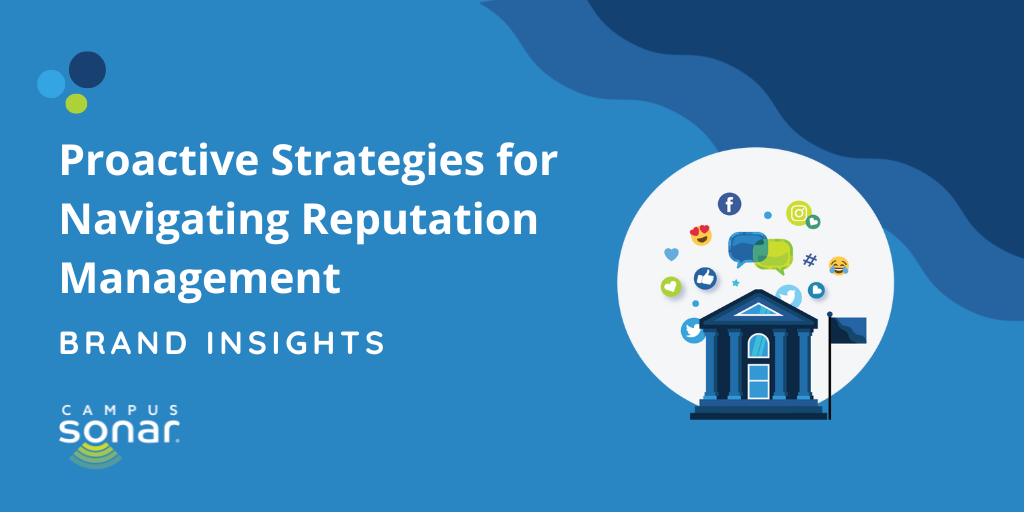Proactive strategies for navigating reputation management

Brand and reputation management is one of the earliest and most significant applications of social intelligence. In the current higher ed landscape, reputation management issues surface almost daily. This broad topic stretches across all areas of campus and includes things inside and outside of your control. But you do have control over when and how you prepare for and respond to each situation.
While higher ed is generally not thought of as nimble, it’s a critical strength and there’s a high need for adaptability in today’s dynamic environment. This is particularly true when you’re communicating with campus champions or stakeholders whose values may not align with yours. We’ve seen this recently with some of our campus partners and the current political landscape.
There’s no way to predict what will happen on your campus, but being proactive helps you be less reactive when a situation emerges.
Proactive Strategies
Build relationships with reporters to leverage media relationships during times of crisis.
Being proactive and responsive to local media are important aspects of managing a brand, and they become essential when crises emerge. Building and maintaining relationships with the media is like making deposits into a trust bank you’ll have to withdraw from in the future—they know you’re a good partner and allow you time to share your perspective in situations where you may not be able to immediately respond.
For many campuses, the national media is aspirational. In our research on news insights and campus communications strategy, only 3% of the 1,500 national higher ed stories were positive. Of this small percentage only about 100 of the 394 reporters were non-athletics reporters.
These insights illustrate why your community relations should begin with local and regional media, even if you’re trying to build a national reputation. Your efforts encourage positive coverage of your campus to paint a strong picture of higher ed as a source of community and a network of successful individuals.
Effective communication and clear responsibilities are critical to an effective crisis management strategy.
Revisiting your communications plan and testing out your response before an incident happens supports a proactive approach. When everyone is on the same page ahead of time, it allows your campus to act swiftly.
Regular tabletop exercises or running through drills and response team strategies builds team confidence in handling emergency situations. It’s an opportunity to understand who to talk to and how to move through potential situations. Whether it’s an interactive discussion or an actual walk through of your crisis response, practice over time helps your team gain muscle memory for their role in your process.
Be authentic and transparent when possible.
Your audience knows when something doesn’t align with your mission or brand. Be mindful of demonstrating your values rather than just making a comment to comment. Transparency is one of our recommended strategies for building trust and credibility.
Also consider the impact statements and responses have on your audience. Sometimes they have a larger ripple effect, especially if it’s an adjacent issue rather than a direct tie to your institution. Identify ways you can triage responses by pre-drafting 1:1 communications from leaders regarding common stakeholder concerns, identifying support resources for those impacted most, and employing a greater understanding of when and how to respond to incidents. You can’t make everyone happy so think critically about the potential impact on your services, campus, students, donors, alumni, etc., before leaning into controversial topics.

